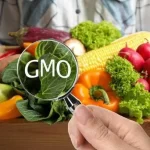The Monsanto Lawsuit Saga as Investors Demand Billions
In the intricate tapestry of modern agriculture, the name Monsanto, now Bayer, often emerges shrouded in controversy. This corporate giant, a beacon for criticism, recently found itself at the heart of a major class action lawsuit. This legal battle spotlights a significant ethical dilemma in the agricultural sector: the intense controversy surrounding genetically modified organisms (GMOs) and their overarching impact on health, the environment, and societal values.
Exploring the Controversy: The Monsanto Class Action Lawsuit
Delving into the Legal Battle Against Monsanto/Bayer
The Escalation of the GMO Debate: The lawsuit against Monsanto marks a pivotal moment in the ongoing global discourse on GMOs. This legal challenge brings to the forefront the ethical and safety concerns associated with GMOs, spotlighting Monsanto’s central role in this divisive issue.
Investor Backlash: Reflecting a deep sense of betrayal, investors are demanding a colossal sum of 2.2 billion euros ($2.5 billion) from Bayer. This claim hinges on accusations of deceptive practices regarding Monsanto’s operations and the undisclosed risks associated with its products.
The Legal Arena: The lawsuit, initiated by the German firm Tilp in Cologne, represents a diverse group of about 320 investors. This group spans from large institutional investors to individual retail shareholders, all united in their claim that Bayer failed in its duty to adequately disclose the legal hazards linked to Monsanto’s herbicide products, particularly Roundup.
Roundup at the Heart of Controversy: Roundup, a globally renowned herbicide, has become the epicenter of this legal and ethical maelstrom. Allegations of its potential health risks have not only fueled this lawsuit but also amplified public and investor distrust. The controversy surrounding Roundup reflects a larger unease about the safety of chemical-intensive farming practices.
Bayer’s Stance Amidst Rising Skepticism: In response to the lawsuit, Bayer maintains that the claims are baseless and insists that their due diligence regarding Monsanto’s acquisition was thorough. However, this defense has done little to mitigate the growing apprehension among stakeholders and the broader public, who are increasingly wary of the long-term implications of Monsanto’s GMO and pesticide usage.
As this legal battle unfolds, it serves as a microcosm of the larger global debate on GMOs, agricultural ethics, and corporate transparency. The outcome of this case could have far-reaching implications not just for Bayer and its stakeholders, but also for the future direction of global agriculture and food safety standards.
The GMO Dilemma – Unveiling Monsanto’s Troubling Practices
As we delve deeper into the controversial world of genetically modified seeds (GMOs), one name looms large, casting a long shadow of doubt and mistrust: Monsanto, now operating under the banner of Bayer. While some proponents of GMOs argue that they hold the key to solving global food shortages, a critical examination of Monsanto’s track record reveals a disturbing pattern of prioritizing profits over the well-being of both consumers and the planet.
Monsanto, now Bayer, has positioned itself as a global leader in the research, production, and aggressive promotion of genetically modified seeds. But the question we must ask is whether these GMOs are truly the panacea they claim to be or if they have been marketed and manipulated to serve the interests of a corporate behemoth.
While proponents of GMOs argue that they can help address world hunger by increasing crop yields, it is crucial to note that Monsanto’s practices have often been marked by an alarming lack of transparency and accountability. The products they’ve brought to market have not always lived up to the lofty promises made in their marketing campaigns.
One of the most concerning aspects of Monsanto’s GMO-related practices is their aggressive promotion of genetically modified seeds without adequately addressing the potential risks. These genetically engineered crops often come bundled with proprietary pesticides, such as the infamous Roundup, which has faced intense scrutiny and controversy for its potential health and environmental hazards.
Monsanto, now Bayer, has also been involved in lawsuits and settlements related to contamination of non-GMO crops by genetically modified ones. This has raised concerns about the impact of GMOs on traditional and organic farming practices, further emphasizing the need for caution.
Moreover, the widespread adoption of genetically modified crops has been met with strong resistance, not only from environmentalists and consumer advocacy groups but also from governments around the world. Countries have enacted bans and restrictions on GMO cultivation and importation due to concerns about their long-term effects on health and the environment.
Critics argue that Monsanto’s aggressive lobbying efforts and questionable relationships with regulatory agencies have allowed them to wield undue influence over the GMO industry, stifling alternative approaches and perpetuating the dominance of genetically modified crops.
European Resistance – Defying Monsanto’s GMO Push
In a world where the debate over genetically modified seeds (GMOs) rages on, Europe has emerged as a beacon of resistance against Monsanto, now operating under the banner of Bayer. Despite Monsanto’s relentless promotion of GMOs, Europe has taken a firm stance, banning the cultivation and sale of these highly controversial genetically modified foods. This European resistance is a testament to the profound concerns surrounding the unchecked proliferation of GMOs.
Even in the face of overwhelming industry pressure, European regulators and governments have chosen to prioritize the safety and well-being of their citizens over corporate interests. While Monsanto, now Bayer, may argue that GMOs hold the key to addressing food shortages, Europe’s GMO ban underscores a profound skepticism that challenges the narrative of these corporate giants.
One glaring example of this resistance is the French seed company Limagrain, which ranks fourth among global seed companies. Despite the European Union’s clear ban on GMO cultivation, Limagrain has ventured into genetically modified crops, raising eyebrows and stirring controversy across the continent. The culmination of their GMO field trials was met with fierce opposition from activists who were determined to protect the integrity of traditional agriculture.
This European resistance against GMOs is fueled by concerns over the long-term environmental and health impacts of these genetically modified crops. Critics argue that GMOs may lead to unintended consequences, such as cross-contamination of non-GMO crops, threatening the livelihoods of organic and conventional farmers.
Furthermore, Europe’s decision to resist the GMO wave highlights the importance of stringent regulations and the need for transparent labeling of GMO products. The European Union’s stance on GMO labeling is clear and unequivocal – consumers have the right to know what they are eating, and GMO products must be clearly labeled as such. This approach stands in stark contrast to the practices of Monsanto, now Bayer, in other parts of the world, where transparency has often been lacking.
Europe’s defiance against Monsanto, now Bayer, is a reminder that the debate surrounding GMOs is far from settled. The concerns raised about genetically modified foods, their impact on ecosystems, and potential health risks should not be brushed aside in the pursuit of corporate profits. Instead, they should serve as a clarion call for responsible and ethical practices in the food industry.
As consumers seeking a healthy lifestyle, it is essential to remain critical of the proliferation of GMOs and to support initiatives that prioritize the long-term well-being of our planet and our bodies over the hasty adoption of highly controversial genetically modified foods.
Global GMO Standoff – Voices Against Monsanto’s GMO Dominance
As the debate surrounding genetically modified seeds (GMOs) rages on, it becomes increasingly evident that a growing number of countries worldwide are taking a stand against Monsanto, now operating under the banner of Bayer. The global GMO standoff is a testament to the profound concerns shared by governments, environmentalists, and informed consumers alike, who are refusing to embrace Monsanto’s vision of GMO dominance and are instead choosing to prioritize the well-being of their populations and the planet.
One significant factor contributing to this global resistance is the mounting body of evidence suggesting potential risks associated with GMOs. Countries have recognized that the widespread adoption of genetically modified crops is not without consequences. Cross-contamination of non-GMO crops, loss of biodiversity, and environmental disruption are some of the critical issues that have fueled this resistance.
Additionally, the long-term health effects of GMO consumption remain a subject of ongoing scientific investigation and concern. While Monsanto, now Bayer, may assert that GMOs are safe for consumption, critics argue that the burden of proof should rest squarely on their shoulders before these genetically modified foods are deemed fit for mass consumption.
The global stance against GMOs is not merely limited to concerns over safety and environmental impact. It also underscores a broader issue of corporate control over the world’s food supply. Monsanto, now Bayer, has faced allegations of monopolistic practices, including lawsuits over patent infringement and the aggressive protection of their proprietary seeds. Critics argue that this level of control over the seed market stifles agricultural diversity and hinders small-scale farmers from accessing and cultivating non-GMO seeds.
The resistance against Monsanto’s GMO dominance is further amplified by the fact that an increasing number of countries are opting for alternative and sustainable approaches to agriculture. Organic farming, regenerative agriculture, and agroecological practices are gaining traction as viable alternatives that prioritize soil health, biodiversity, and sustainable food production over the potential risks posed by GMOs.
Furthermore, the global consensus against GMOs has led to a growing number of countries enacting bans, restrictions, or labeling requirements for genetically modified crops. This trend reflects a commitment to transparency and consumer choice, allowing individuals to make informed decisions about the foods they consume.
The Profitable Controversy – Monsanto’s Ethical Quandary
While Monsanto, now operating under the name Bayer, has reaped immense profits from synthetic pesticides and genetically modified seeds, these financial gains have come at the cost of ethical and environmental controversies that continue to plague the corporation. Investors, activists, and concerned citizens are raising pertinent questions about the moral compass of a company that places profit above all else, even when it jeopardizes the health of consumers and the sustainability of our planet.
One of the most glaring concerns is the questionable ethics surrounding Monsanto’s aggressive promotion of genetically modified seeds. Critics argue that the company has consistently prioritized profit margins over the potential risks posed by their genetically engineered crops. The introduction of proprietary pesticides, such as Roundup, as part of GMO packages, has not only raised concerns about health implications but has also fueled allegations of corporate manipulation.
The controversy surrounding Roundup, the world’s best-selling herbicide, is a testament to Monsanto’s ethical quandary. Activists and investors have taken issue with the safety of this widely used herbicide, linking it to adverse health effects and environmental degradation. Monsanto, now Bayer, has faced legal battles and multimillion-dollar settlements over Roundup-related lawsuits, further shedding light on the potential hazards of their products.
Furthermore, Monsanto’s practice of aggressively protecting its genetically modified seeds through patent enforcement and lawsuits has been met with criticism. These actions have been viewed as attempts to maintain a monopoly on the seed market, stifling competition and limiting farmers’ options. The resulting control over the world’s food supply raises serious ethical questions about corporate responsibility and fair access to resources.
Another concerning aspect of Monsanto’s practices is the contamination of non-GMO crops by genetically modified ones. Organic and conventional farmers have found themselves entangled in legal disputes due to cross-contamination, leading to financial losses and ethical dilemmas. Monsanto’s unwillingness to address these issues adequately has deepened the divide between the corporation and the agricultural community.
The profitable controversy surrounding Monsanto, now Bayer, underscores a fundamental clash between corporate interests and the principles of ethical business practices. Investors are increasingly hesitant to align with a company that appears to prioritize profit at any cost, even when it raises serious ethical, environmental, and health concerns.
Roundup Controversy – Monsanto’s Herbicide Under Scrutiny
One of the most contentious chapters in the saga of Monsanto, now operating as Bayer, centers around Roundup, the world’s best-selling herbicide. The Roundup controversy serves as a stark reminder of the ethical and health-related concerns that have plagued the corporation’s GMO-related practices. Activists, investors, and consumers alike are challenging the safety and transparency of a product that has become emblematic of Monsanto’s corporate ethics.
Roundup’s ubiquity in agriculture cannot be overstated, but its reputation has been tarnished by allegations of health risks and environmental damage. The herbicide’s active ingredient, glyphosate, has faced scrutiny for its potential carcinogenic properties, leading to legal battles and significant financial settlements.
Investors have taken the initiative to hold Bayer accountable for the Roundup controversy, demanding approximately 2.2 billion euros ($2.5 billion) as part of a class action lawsuit. Their allegations suggest that Bayer deceived shareholders about the risks posed by consumer lawsuits linked to Roundup in the United States, further eroding trust in the company’s ethical standards.
Monsanto’s, now Bayer’s, response to the Roundup controversy has been met with skepticism. While the corporation has consistently defended the safety of glyphosate, critics argue that their approach reflects a lack of transparency and accountability. The Roundup controversy underscores the importance of independent research and regulatory oversight, as well as the need for a thorough and unbiased examination of the potential health impacts of products like Roundup.
Moreover, the controversy surrounding Roundup serves as a microcosm of the broader debate about corporate responsibility in the realm of genetically modified crops. Monsanto’s aggressive promotion of Roundup, coupled with its inclusion in GMO packages, has raised ethical questions about the corporation’s willingness to put profit ahead of public health and environmental sustainability.
The Roundup controversy reinforces the notion that the corporate landscape surrounding GMOs is fraught with ethical dilemmas. As individuals seeking a healthy lifestyle, we must remain vigilant in our scrutiny of Monsanto’s, now Bayer’s, practices and their commitment to transparency, safety, and corporate responsibility.
In a world where healthy living and responsible consumer choices are paramount, it is our duty to be vigilant about the practices of corporations like Monsanto, now Bayer. The GMO debate is not a simple black-and-white issue; it is a complex web of ethical dilemmas, health concerns, and environmental impacts. As consumers, it is crucial to stay critical and informed, making choices that prioritize our well-being and the planet’s health over profits. The subsequent sections will delve into tips and alternatives for maintaining a healthy lifestyle while avoiding highly controversial genetically modified foods.
The post The Monsanto Lawsuit Saga as Investors Demand Billions appeared first on Healthy Holistic Living.












